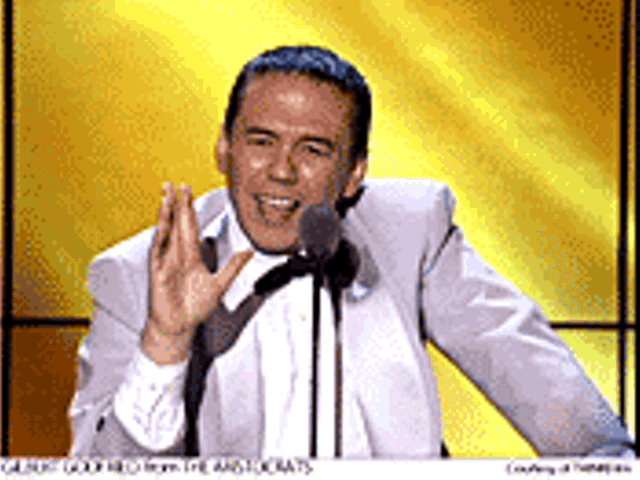Anyway, it's not clear why all this is supposed to be exciting. As Soderbergh himself has said in interviews, we already live in a world of simultaneous release — piracy has seen to that — a state of affairs that isn't exactly keeping people away from theaters, despite what Hollywood will tell you. And Bubble is no megapic about a large ape or a pubescent wizard, merchandized up to its elbows and debuting only after months of anticipation. Instead, it's a tightly focused, character-driven drama with the novice actors, cramped interiors, natural lighting and long, loaded silences of an indie. Theater, DVD, cable, Friday, Tuesday — will anyone notice?
They should. Bubble is a strong film with a gorgeously minimal script by Coleman Hough (Full Frontal? Huh). Soderbergh has directed his actors to perfection, rendering them indistinguishable from their roles. And, though the story resorts to sensationalism for its conflict, the film is eloquent in its portrayal of silence, depression, repression, denial and the woes of the Midwestern white working class.
Martha (Debbie Doebereiner) is a chipper woman nearing middle age, living with her father and working at a doll factory. Every day, she picks up her younger co-worker, Kyle (), with whom she eats lunch while they discuss virtually nothing. (There appears to be no topic that the nearly silent Kyle can't kill via grunt, grimace or one-word answer.) Despite such minimal responses, Martha refers to Kyle as her "best friend" and takes his picture at a bakery where they eat breakfast. When the woman behind the counter asks Martha how she is, her reply is "Terrific." Terrific? On a frigid winter morning in a deserted town when the sun hasn't yet risen and she's on her way to work in a doll factory?
In this quiet way, Bubble hints at trouble, but for a long time, nothing happens. The movie's pace is glacial, matching the stultified life in the town. At work, Martha gives the dolls eyes and attaches their lashes. Using a prong, Kyle pries the plastic heads from their molds in a violent process that eerily resembles birth. Time passes. Martha goes home and feeds her father dinner. Kyle works another job and returns to his tiny bedroom. The camera lingers on the images of the dolls, their vacant stares a comment on the lifelessness of the factory and the people in it. What can happen in a place like this? Everything, and everybody, seems dead.
Enter Rose (Misty Dawn Wilkins), an attractive young woman who begins work at the factory. When the manager introduces Rose to the tiny staff, Martha's face is a map of masked misery and alarm. This may be Doebereiner's first film, but she is expert at conveying several feelings at once, as well as revealing her character's attempt to hide them. Indeed, Martha faces the loss of her best (and apparently only) friendship, and soon enough, her unstated fears come to pass. Kyle and Rose strike up a friendship, then head toward romance. Rose isn't quite a spitfire — the film couldn't take it — but she has some pluck, and her energy drives the rest of the movie.
Bubble is billed as a murder mystery, so it won't ruin the plot to reveal that it contains a killing. In a way, that's a shame, since the film could have said as much without it. Hough has mastered the cadences of rural lower-class speech, complete with superficial niceties and moments of sudden, surprising knowingness, and we don't need sensation to get to know and understand the characters. On the other hand, the murder does wake up the film (and the people in it). And, ultimately, the crime's meaning raises the stakes.
Bubble isn't perfect. The ending seems unlikely, and its tremendous patience will likely bore those who enjoy Soderbergh's flashy films. As promoters have promised, it does represent a return to the director's roots, with the intimacy of Sex, Lies, and Videotape and the focus on a triangle of people in conflict and attraction. In fact, Bubble is more sophisticated than Sex, portraying an America seldom seen on camera. Somehow, even as he paints them as the living dead, Soderbergh also offers his characters compassion. Perhaps it's simply that he's given them his time and careful attention.





